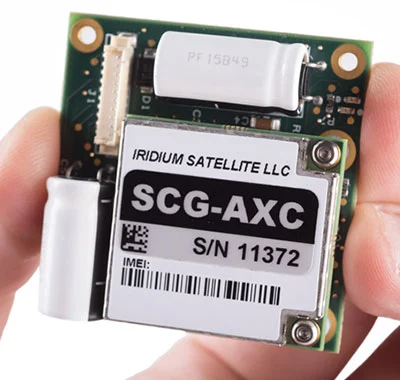Professor Kirk Martinez and his team from the University of Southampton, UK, are using moving rover units equipped with RockBLOCKs to measure how Icelandic glaciers respond to small-scale changes in temperature and precipitation throughout the year.
Global warming has resulted not just in the melting of glaciers throughout the world, but in their accelerated movement as well. The increased temperatures mean that a larger amount of water is finding its way underneath glaciers, effectively acting as a lubricant and causing glaciers to speed up.
Using differential GPS (dGPS), Professor Martinez can accurately calculate glacier speeds by measuring location differences as small as 2cm. In the past, achieving such spatial resolution in remote locations and over the course of months was financially prohibitive.
But not anymore, thanks to the next generation of low-cost hardware being used in his Ice Tracker project. In previous research, sensor probes were also placed in and under glaciers, collecting data on conditions, pressure, stresses, and subglacial movement.
All of us at Rock Seven (now trading as Ground Control) wish Professor Martinez and his team the very best of luck.
Get in touch
With over 20 years experience in satellite tracking we have the knowledge and experience to ensure you are equipped with everything you need to make the right choice.

